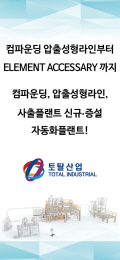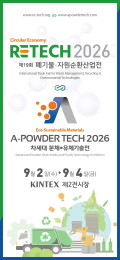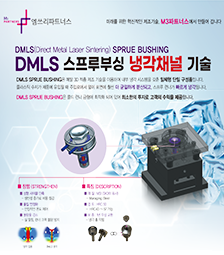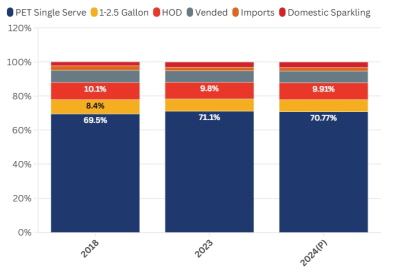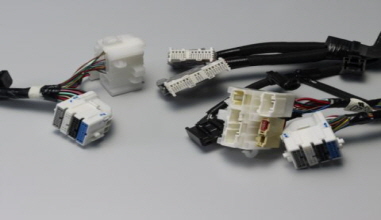Chemical reports
After limiting imports, China aims to boost domestic plastic recycling
After limiting imports, China aims to boost domestic plastic recycling
Since early 2019, more than 40 Chinese cities, including Shanghai, Guangzhou, Xi'an and Kunming, have rolled out pilot waste sorting programs for recyclables and trash.
It's a big change for Chinese homes, and it's inspired debate, confusion and humorous online memes among residents as they grapple with being forced to separate recyclables, wet kitchen trash, dry waste and hazardous waste for the first time.
In the past, he said, scrap plastic recycling was not talked about much among the general public and still has a negative image to many people. Companies would not want to openly admit to using recycled materials in their products.
"Now you look at these big companies, whether you are Nestle, Pepsi, Coca-Cola or Adidas, they are actively committed to recycling old materials that they sold," he said. "So it becomes a glorious deed and a contribution to humankind. It's now a huge focus."
Zheng, who is chairman of the China Synthetic Resin Supply and Sale Association in Beijing, said the conference's focus on waste separation and the pilot legislation reflects the "enormous impact" this will have on the industry.
"China has incorporated waste recycling into the country's top-level design, which is considered critical to the development and the life of the country," he said, adding that waste recycling is seen as more critical to national development.
The conference was organized by the Zheng's group and one of its units, the China Plastic Recycling Association, as well as Beijing Guojia Foundation Information Consulting Co. Ltd.
Ben Ho, president of the China Thermoforming Association, said he's been heavily involved in helping the government create the new waste sorting laws and has been watching closely how the industry has reacted.
"If you check how many [new] companies register … there is a trend, more recycling companies are registering this year," he said. "People know there will be potential good business for recycling."
He noted, for example, that there's a shortage of 2 million metric tons of PET bottle flake from imports, so more PET bottle waste is needed: "The [recycled] PET is now more expensive than virgin material."
Duan Li, whose company Dollar King Industrial Co. is a large exporter of plastic daily-use items, said it moved in-house plastic scrap recycling operations to Southeast Asia when China cracked down on imported materials.
Duan said Dollar King set up operations in Malaysia to make pellets and has also opened a scrap sorting warehouse employing 20 people near Chicago.
"We do the scrap sorting, then manufacture pellets [in Malaysia] and then export them back to China as pellets according to China's standards," he said.
For his company, China's push to increase domestic sorting won't have as much impact because Dollar King imports finished pellets to its Chinese factories, where they are then molded into products like hangers, garbage cans and storage boxes, which are exported to the United States.
The industry is in a period of change, he said.
"This is a time of great challenge and of great opportunity because we're starting again from scratch," he said. "You start over and reshuffle the cards, in the process a lot of the competition will be eliminated, especially those with no vision or global strategy."
Duan estimated that the volume of imported pellets has increased three- or four-fold since the scrap import ban but said the imported pellets are only a fraction of the volume of scrap that used to come directly to China. That still leaves a gap in demand in China.
"To be honest, the imports are about half the volume as before; there's 50 percent capacity to fill," he said. "There's a lot of space to grow."
That could bring more foreign companies into China's recycling market, Duan said. But Zheng said some Chinese restrictions, like stricter limits on using recycled content in plastic beverage bottles, may make it more difficult for closed-loop recycling in China.
"For example, Pepsi-Cola and Coca-Cola promised to recycle plastic bottles, PET bottles, and reuse them," Zheng said. "In the United States, this is permitted by law as long as it is [Food and Drug Administration] certified. However, it is not allowed in China."
He said China is developing standards around imported recycled pellets.
"I guess it will take a year or two. The market has not fully recovered," he said. "Why? The reason is that the Chinese government always tries to overcorrect things.
"It's like a doctor operating on a cancer," Zheng said. "Your tumor is only a small piece, but all the edges around it will also be removed at the surgery to prevent the cancer spreading. Some innocent companies may get hurt."
Ho added that it will take time for China to implement waste collection systems.
"I think this year, the 46 cities can only focus on educating people and forcing people to follow the rules to sort the waste first," Ho said. "Real recycling and reuse is a [whole] other task. It is still too early to think about real recycling.
"Frankly speaking, it will take about one year," Ho said. "The government needs about one cycle to figure out the cost and result. Then we will see if they move forward to do real recycling and reuse the waste."
Until then, one expert said, informal recyclers will continue to handle the brunt of collecting waste plastic and other scrap.
"There is a space for them," said Rich Brubaker, whose consulting company Collective Responsibility has done extensive research on Shanghai's informal scrap collection industry.

